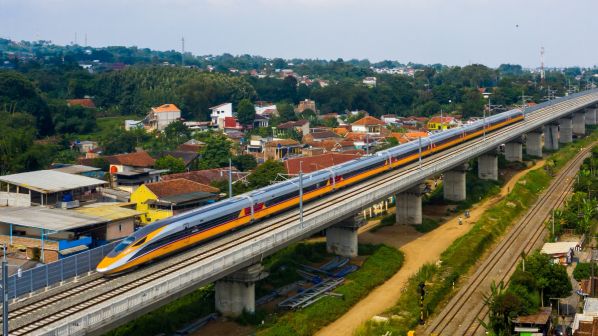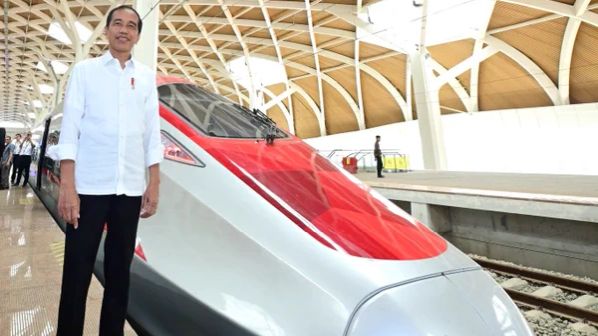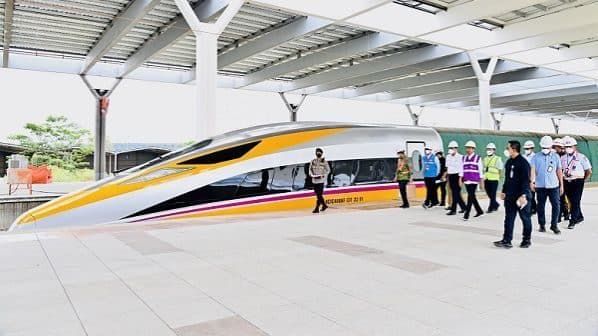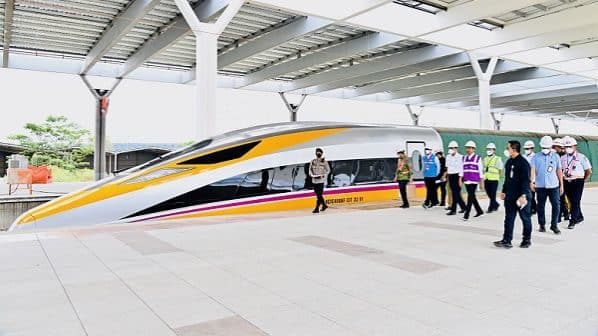INDONESIA’s Transport Ministry has confirmed that the 142.3km Jakarta - Bandung high-speed line will officially open on October 1.
Indonesia’s president, Mr Joko Widodo, took part in a trial run from Halim station in Jakarta to Padalarang station in Bandung on September 13, completing the journey in 25 minutes. From here, Widodo, and several government ministers and Indonesian celebrities who rode the high-speed train, continued on a six-car feeder service on the Greater Bandung Commuter Line to Bandung station.
Widodo confirmed the planned opening date and expressed his hope that the new high-speed service would ease traffic congestion and pollution by shifting people from road to rail. The 12 eight-car Yawan high-speed trains supplied by CRRC have capacity for 600 passengers and offer a 3+2 seating arrangement in economy class. Up to 68 trains are expected to operate on the line every day, serving four stations.
“Every year we lose more than Rupiah 100 trillion due to traffic jams in Jabodetabek and Bandung,” Widodo said.
Passengers will be able to use the train for free during the first 90 days of operation although tickets will be limited. Ticket prices for the start of full commercial operation have not yet been set and Widodo pushed back against suggestions that they would be subsidised by government.

Testing and commissioning
Testing is continuing on the 142.3km line. China Railway International is leading the joint commissioning and testing programme, working alongside China Railway Beijing Bureau Group, the China Academy of Railway Sciences as well as local Indonesian companies.
Local media reports suggest that speeds in excess of 380km/h have been reached during trials. High-speed trains will operate at up to 350km/h on the line, completing the journey between Halim and Tegaluar in Bandung in 45 minutes, serving an intermediate station in Karawang, West Java. However, services will initially terminate at Padalarang, in the east of Bandung, while construction at Tegaluar is completed.
Construction of the project was conducted by PT Kereta Cepat Indonesia-China (KCIC), which is a consortium of state-owned Indonesian companies (60%) and China Railway Engineering and other Chinese companies (40%). The line has entirely adopted Chinese railway equipment, the first time China has exported all of the technology for an international high-speed project. Local media has suggested that 400-600 Indonesians have travelled to China to study train maintenance and operation.
The project has ultimately come in nearly $US 2bn over the initial $US 6.07bn budget due to technical issues and the unstable nature of civil works. Indonesia is currently seeking support to extend the line to Surabaya in East Java, with Widodo confirming in 2020 that the scheme is a priority infrastructure project for Indonesia.
For detailed data on high-speed rail projects from around the world, subscribe to IRJ Pro.



